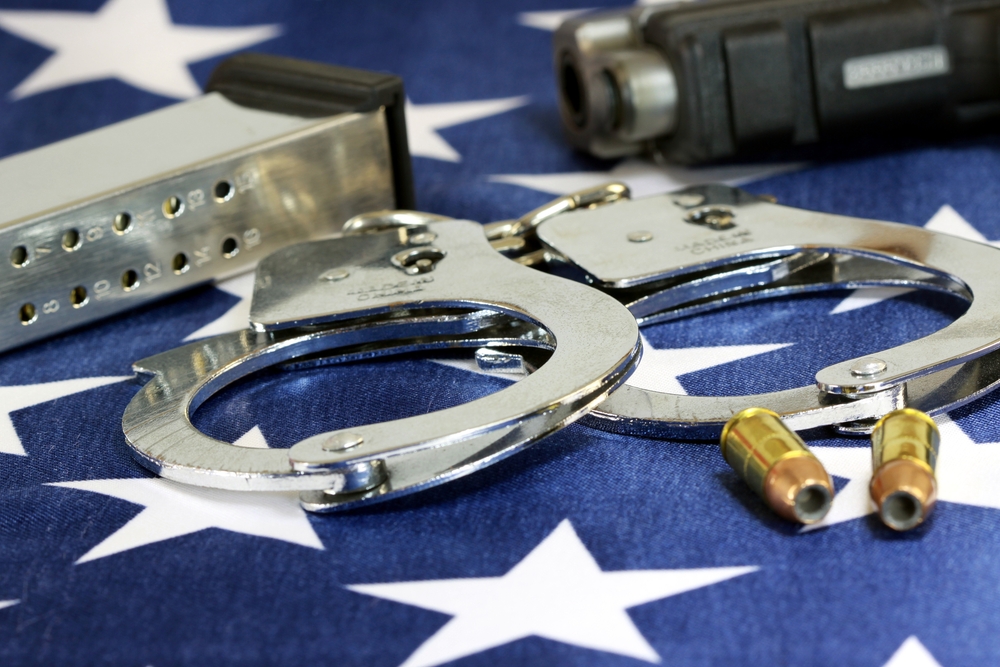
April 15, 2025 Last Updated: November 5, 2025 by Anthony Riccio
Straw purchasing of firearms is a critical issue in the United States that attracts severe federal charges. This practice violates federal laws and carries heavy penalties. These may include substantial fines and lengthy prison sentences for anyone accused of acting as a straw purchaser. Understanding the laws, potential defenses, and available legal strategies is crucial.
In this comprehensive guide, we’ll explore what straw purchasing entails, the federal rules governing it, the penalties involved, and effective defense strategies. If you or someone you know is facing charges, the insights here will help you understand your options and make informed decisions. Working with an experienced Massachusetts criminal defense lawyer can also ensure your rights are protected every step of the way.
Straw purchasing occurs when an individual buys a firearm on behalf of another person who cannot or does not want to buy it themselves. The actual buyer may be prohibited from purchasing due to a criminal record, mental health restrictions, or other disqualifications.
The straw purchaser falsely claims to be the actual buyer on ATF Form 4473. Doing so is a federal offense. This practice is often used to bypass firearm restrictions and conceal the true buyer’s identity.
Federal authorities treat this very seriously because such purchases can result in guns ending up in the hands of individuals who use them for criminal purposes.
Under the Gun Control Act of 1968, knowingly making false statements in connection with firearm purchases is a federal crime punishable by up to 10 years in prison.
The Bureau of Alcohol, Tobacco, Firearms, and Explosives (ATF) prioritizes investigating and prosecuting straw purchasing cases, viewing them as a significant threat to public safety.
Several federal laws specifically address straw purchasing and aim to prevent firearms from falling into the wrong hands. Below are the most important ones to understand:

The Gun Control Act is the cornerstone of federal firearm regulations in the U.S. It prohibits certain categories of people such as felons, individuals convicted of domestic violence misdemeanors, and those with restraining orders from purchasing or possessing firearms.
A central requirement is completing ATF Form 4473 during a firearm purchase. Buyers must declare under penalty of perjury that they are the actual purchaser. Any false statement constitutes a federal offense.
The form includes questions designed to confirm whether the buyer is legally eligible. One of the most important questions is if the person filling out the form is the actual buyer. Providing a false answer is a federal crime.
In Abramski v. United States, the Supreme Court ruled that misrepresenting the actual buyer of a firearm on ATF Form 4473 constitutes a material misstatement—even if the recipient was legally eligible to buy firearms. This decision underscores the seriousness of false statements on the form.
This law strengthened penalties for straw purchasing and firearms trafficking. It imposes additional penalties on individuals convicted of buying guns for others who are prohibited and provides federal agencies with greater resources to investigate and prosecute these cases.
The penalties for straw purchases under federal law are severe:
If firearms obtained through straw purchasing are later used in other crimes, additional charges may be filed, leading to harsher consequences.
According to ATF reports, straw purchases remain a major channel for firearms entering illegal markets, which is why enforcement remains strict.
Federal charges for straw purchases are daunting, but several defenses may be available depending on the facts.
Prosecutors must prove the accused knowingly and willfully made false statements on ATF Form 4473. If the defense shows there was no intent to deceive or a lack of awareness, the case against the defendant can weaken.
If law enforcement induced the accused into making a purchase they otherwise would not have made, an entrapment defense may apply.
The defense may challenge the prosecution’s evidence, such as questioning the legality of searches and seizures, the reliability of witnesses, or the chain of custody of firearms.

Defense Strategies Overview
| Defense Strategy |
Description |
Potential Challenges |
| Challenging Intent | Argue the defendant lacked intent to commit a crime. | Hard to prove without clear evidence of mindset. |
| Entrapment | Claim law enforcement induced the defendant. | Must show the idea came from authorities. |
| Evidentiary Issues | Expose weaknesses in prosecution’s evidence. | Depends on availability/admissibility of evidence. |
To avoid accidental involvement in a straw purchase:
It involves buying a firearm for someone else who either cannot or does not want to purchase it directly, while falsely claiming to be the actual buyer.
Up to 10 years in prison, $250,000 in fines, and a permanent criminal record. Harsher penalties apply if the firearm is later used in a crime.
Yes, if they don’t understand the legal implications of buying a gun for someone else.
A lawyer can challenge the prosecution’s evidence, argue lack of intent, or raise defenses such as entrapment.
Understand firearm regulations, complete ATF Form 4473 truthfully, and avoid purchasing for others.
Straw purchasing is a complex federal offense with life-changing consequences. Penalties may include steep fines and long prison sentences. A strong defense can make a significant difference in the outcome.
If you are accused of being a straw purchaser, seeking immediate legal counsel is critical. Attorney Anthony Riccio has the experience to navigate federal firearm laws and build a defense tailored to your situation. Protecting your rights and preparing a thorough strategy are his priorities. Contact Riccio Law today for a confidential consultation.